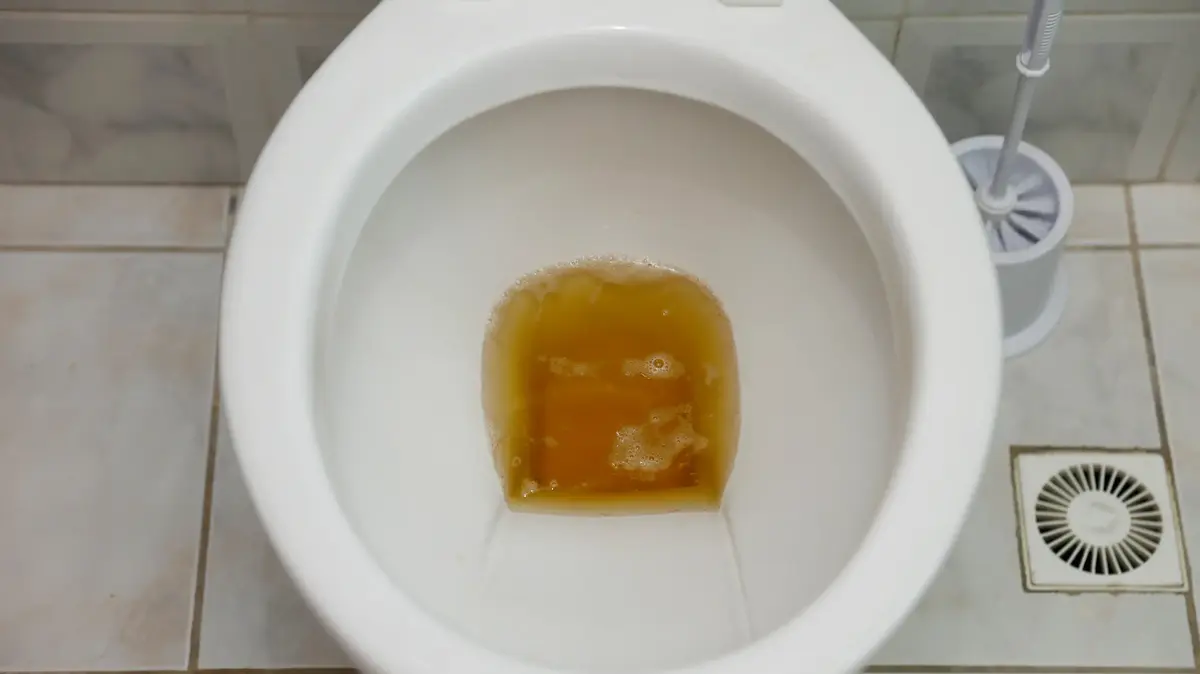Doctor explains why men urinate incorrectly/@dr.aiwen
An age-old mystery about the yellow color of our urine has finally been solved, after 150 years of research. Scientists have determined that an enzyme called bilirubin reductase (BilR), produced by bacteria in the gut, is responsible for the yellow color of urine – and this discovery is important far beyond deciphering the source of the color, as it may help to understand, prevent, and resolve various gut-related diseases.
Urinary fluid is a major diagnostic tool for doctors, as it reveals a wide range of medical problems. Experts hailed the "miraculous" breakthrough that solved the "puzzle", with many online left surprised that we have only just discovered what gives urine its color.
Brantley Hall, an assistant professor at the University of Maryland who led the study, said: "It is amazing that such an everyday biological phenomenon has been left unexplained for so long, and our team is excited to be able to explain it. The multidisciplinary approach we were able to implement – thanks to the collaboration between our labs – was key to solving the physiological puzzle of why our urine looked yellow."
It took them 150 years to understand why our urine is yellow/ShutterStock, ShutterStock
So what gives our urine the yellow color?
Urine is a combination of water, electrolytes, and waste that our kidneys filter from the blood. More than 125 years ago, scientists identified urobililine as the yellow pigment in urine, but they didn't know what was responsible for its production.
"It turns out that the color of urine is related to the body's red blood cells," the researchers said. The process occurs when red blood cells reach the end of their life cycle after six months and are degraded in the liver. This creates a bright orange substance - bilirubin - that is secreted into the intestine. "Once bilirubin reaches the gut, the microorganisms in the gut can convert it into other molecules," the study found.
An enzyme called bilirubin reductase allows gut bacteria (such as E. coli) to turn bilirubin into urobilinogen, a colorless byproduct. The urobilinogen is spontaneously broken down into a molecule called urobiliprotein, which is the yellow pigment that colors urine.
The study's authors said that before that, scientists thought there were several enzymes involved in the process — not a single enzyme.
For more bizarre and interesting stories from around the world - come to our WhatsApp channel >>>
On the other hand - sometimes there are more colors
This woman's urine unexpectedly turned purple. And it didn't end well
, what caused this man's urine to turn green?
With a refund
5 minutes a week and wrinkles disappear with a revolutionary anti-aging device
In association with Sensica
The discovery of the enzyme bilirubin reductase could help researchers learn more about gut health, inflammatory bowel disease and jaundice, the researchers said.
Jaundice - characterized by yellowing skin and eyes - occurs when the liver cannot clear excess bilirubin. Although bilirubin is a waste product and is considered toxic, other studies indicate that it can help patients undergo organ transplants.
The research team found that the enzyme is present in almost all healthy older people, but it is often lacking in newborns and people with inflammatory bowel disease.
The study was published in Nature Microbiology.
- More on the subject:
- urine
- Human body
- Pee

